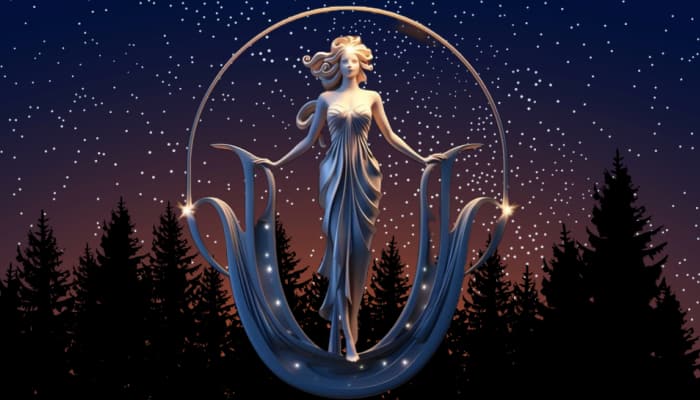Life Is Music: Know what the ‘Godfather of Jazz in India’ Louis Banks has to say about music
Here’s an opportunity for all the lovers of music to get to know their favourite artistes closely. As we gear up for the grand launch of the musical initiative – Life Is Music – lets know what one of the legends associated with it, has to say about his music.
Trending Photos
)
Mumbai: Here’s an opportunity for all the lovers of music to get to know their favourite artistes closely. As we gear up for the grand launch of the musical initiative – Life Is Music – lets know what one of the legends associated with it, has to say about his music.
In a candid and rather long interview with Yoshita Sengupta, Louiz Banks speaks about his dream venue, artists he wishes to collaborate with and how one should get initiated into Jazz.
The godfather of jazz in India, as he is popularly known, sure likes a good conversation. Despite having spent over 40 years as a musician and playing with the likes of the legendary American jazz trumpeter and composer Dizzy Gillespie and RD Burman, there’s not a bone in him or a single word that he utters that can lead you to doubt his humility. He’s punctual on sets and gets as excited as an innocent child when a packet of glucose biscuits and a sticky glass of instant coffee is brought to him in the vanity van in the evening break, when a part of this interview is being conducted. Excerpts;
Which are five of your all time favourite jazz numbers?
My Funny Valentine
Stella by Starlight as interpreted by Miles Davis
Maiden Voyage as interpreted by Herbie Hancock
C Jam Blues as interpreted by Oscar Peterson
All the things you are as interpreted by Louiz Banks (laughs)
Your best performance, so far?
The one that I will give tomorrow.
A venue you dream of performing at?
Carnegie Hall; it’s every musician’s dream. That’s one of the greatest, most renowned and revered stage for a musician. Abroad, if you’ve played Carnegie Hall means you’ve arrived. I get excited by even thinking about what it would be like to stand on that stage and perform to an audience that has witnessed the best artists in the world perform. They’ve heard everything. Now when you go up on stage, in front of them, what do you do? You emulate somebody or do you play your own tune. I mean, what do you do? It’s scary.
What would you play at Carnegie?
I would play my own music. That would be the safest thing. I wouldn’t copy anybody and I would hope that they like it. But it’s a challenge. I know my knees will be shaking for sure.
An artist you would want to perform with?
I always wanted to play with three legends – Michael Brecker (American jazz Saxophonist and composer), John Coltrain (American jazz Saxophonist and composer), Miles Davis (American jazz musician, trumpeter and composer), but they’ve unfortunately all passed away.
Among the current set of musicians, I’d like to play with a bass player called Christian McBride and another bass player called John Patitucci and drummers Steve Smith and Dave Weckl (American jazz fusion drummer). There’s another bassist called Dave Holland, but that dream of mine is coming true. I’m going on tour of North America with (Ustad) Zakir Hussain and on the bass for that tour is Dave Holland.
Your favourite jamming buddy?
My son Gino. He’s my best friend and musical colleague. He knows my music inside out and I trust him. I’m most relaxed on stage when he’s on drums; I know nothing is going to go wrong.

If a kid walked up to you and asked you to help him get initiated into jazz, what would you tell him? Which artist would you suggest he start listening to?
Just to his perspective right, I’d suggest he go back to the beginning. Go back to the evolution of jazz. Jazz came about 100 years ago and in almost every decade, it has evolved to a different style. And the evolution goes on till date. What it is today is an amalgam of every style that was there before.
In one word, Jazz is freedom because as they say, you can’t play a wrong note in Jazz. There is no such thing as a wrong note. It’s improvisation and you can play anything you want. Yes, giving that kind license can sometimes prove dangerous as well (laughs).
The caliber of a musician is judged by what notes he chooses to play. All the 12 pitches of the chromatic scale are at his disposal, but what he chooses, how he plays it, how he links them and at what intervals is what proves his caliber.
To someone who wants to play Jazz, I’d ask to go all the way back to Louis Armstrong (Legendary American jazz trumpeter and singer). During his time, Jazz wasn’t as layered, refined and sophisticated as it is today. It’s a great starting point.
After Armstrong, he can jump to the great Jazz icon Miles Davis. If he just listens to the entire repertoire of Miles Davis, he’ll have a very clear understanding of what Jazz is, the beauty of it and he will begin to like Jazz. Miles Davis is the epitome of what Jazz is. He changed trends, every 10 or 5 years. He was so far ahead of his time that he would bring about a change, introduce something new and a whole lot of people would follow. There was a certain simplicity, a sophistication, a hidden sophistication to his music. You can discern that if your intellect allows you to do that.
If your intellect allows you to; can you elaborate?
There is a certain intelligence that you need to have to listen to and appreciate Jazz. When talking about Jazz, you are essentially talking about a combination of harmony against melody and the variation in the melody controlled by the harmony. A little bit of intelligence is needed to appreciate that.
Melody by itself is not important in Jazz. It’s just for identification. What you do with the melody is important. Give a Jazz musician a tune like Happy Birthday and see what he does with it. That is what is important in Jazz. There are 3 chords to that tune (Happy Birthday), but a Jazz musician will discover hidden harmonies inside that melody and he will use it in his improvisation. That’s where intellect comes in; it’s a study.







)
)
)
)
)
)
)
)
)
)
